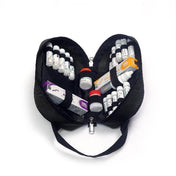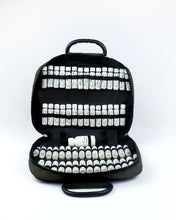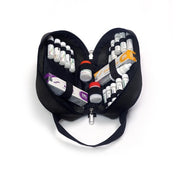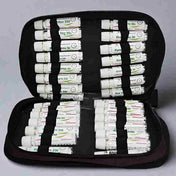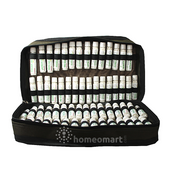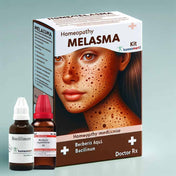Cactus Grandiflorus Homeopathy LM Potency Dilution
Cactus Grandiflorus Homeopathy LM Potency Dilution - 1/2 Dram (1.6 Gms) / 0/1 is backordered and will ship as soon as it is back in stock.
Couldn't load pickup availability
Description
Description
Synonym: SELENICEREUS SPINULOSUS
Acts on circular muscular fibres, hence constrictions. It is the heart and arteries especially that at once respond to the influence of Cactus, producing very characteristic constrictions as of an iron band. This sensation is found in various places, śsophagus, bladder, etc. The mental symptoms produced correspond to those found when there are heart affections, sadness, and melancholy: Hćmorrhage, constrictions, periodicity, and spasmodic pains. The whole body feels as if caged, each wire being twisted tighter. Atheromatous arteries and weak heart. Congestions; irregular distribution of blood. Favours the formation of clots speedily. Great periodicity. Toxic goitre with cardiac symptoms. Cactus is pulseless, panting and prostrated.
Indications for Cactus Grandiflorus:
Cactus Glandiflorus is a multipurpose health tonic primarily used to treat cardiovascular issues. It relieves constrictive, contracting and congesting pain in the heart and also in the bladder, rectum, vagina and uterus. It is also used for the treatment of indigestion and haemorrhoids. It helps in reducing dizziness and difficulty in breathing caused due to gas in stomach.
Patient Profile: Cactus Grandiflorus LM Potency Medicine
Mind.--Melancholy, taciturn, sad, ill-humored. Fear of death. Screams with pain. Anxiety.
Head.--Headache if obliged to pass dinner hour (Ars; Lach; Lyc). Sensation as of a weight on vertex. Right-sided pulsating pain. Congestive headaches, periodical, threatening apoplexy. Blood vessels to the head are distended. Feels as if the head were compressed in a vice. Pulsation in ears. Dim sight. Right-sided prosopalgia, constricting pains, returns at the same hour daily (Cedron).
Nose.--Profuse bleeding from the nose. Fluent coryza.
Throat.--Constriction of śsophagus. Dryness of tongue, as if burnt; needs much liquid to get food down. Suffocative constriction at the throat, with full, throbbing carotids in angina pectoris.
Stomach.--Constriction, pulsation, or heaviness in the stomach. Vomiting of blood.
Stool.--Hard, black stools. Diarrhśa in the morning. Hćmorrhoids are swollen and painful. The sensation of great weight in the anus. Hćmorrhage from bowels in malarial fevers and with heart symptoms.
Urine.--Constriction of the neck of the bladder, causing retention of urine. Hćmorrhage from the bladder. Clots of blood in the urethra. Constant urination.
Female.--Constriction in the uterine region and ovaries. Dysmenorrhśa; pulsating pain in uterus and ovaries. Vaginismus. Menses early, dark, pitch-like (Cocc; Mag c); cease on lying down, with heart symptoms.
Chest.--Oppressed breathing as from a weight on chest. Constriction in the chest, as if bound, hinders respiration. Inflammation of diaphragm. Heart constriction, as from an iron band. Angina pectoris. Palpitation; pain shooting down left arm. Hćmoptysis, with convulsive, spasmodic cough. Diaphragmatic, with great difficulty of breathing.
Heart.--Endocarditis with mitral insufficiency together with violent and rapid action. Acts best in the incipiency of cardiac incompetence. Heart weakness of arterio-sclerosis. Tobacco heart. Violent palpitation; worse lying on the left side, at the approach of menses. Angina pectoris, with suffocation, cold sweat, and ever-present iron band feeling. Pain in the apex, shooting down the left arm. Palpitation, with vertigo; dyspnśa, flatulence. Constriction; very acute pains and stitches in the heart; pulse feeble, irregular, quick, without strength. Endocardial murmurs, excessive impulse, increased prćcordial dullness, enlarged ventricle. Low blood pressure.
Extremities.--Śdema of hands and feet. Hands soft; feet enlarged. Numbness of left arm. Icy-cold hands. Restless legs.
Sleep.--Sleepless on account of pulsation in different parts of the body. Frightful dreams.
Fever.--Fever every day at the same hour. Coldness in the back and icy-cold hands. Intermittent; paroxysms about midday (11 am) incomplete in their stages, accompanied by hćmorrhages. Coldness predominates; cold sweat, with great anguish. Persistent subnormal temperature.
Modalities.--Worse, about noon, lying on the left side; walking, going upstairs, 11 am and 11 pm. Better, open air.
Relationship.--Antidotes: Acon; Camph; China.
Compare: Digital; Spigel; Convallar; Kalmia; Naja; Magnol.
Dose.--Tincture (best made from flowers), to the third attenuation. Higher in nervous palpitation.




